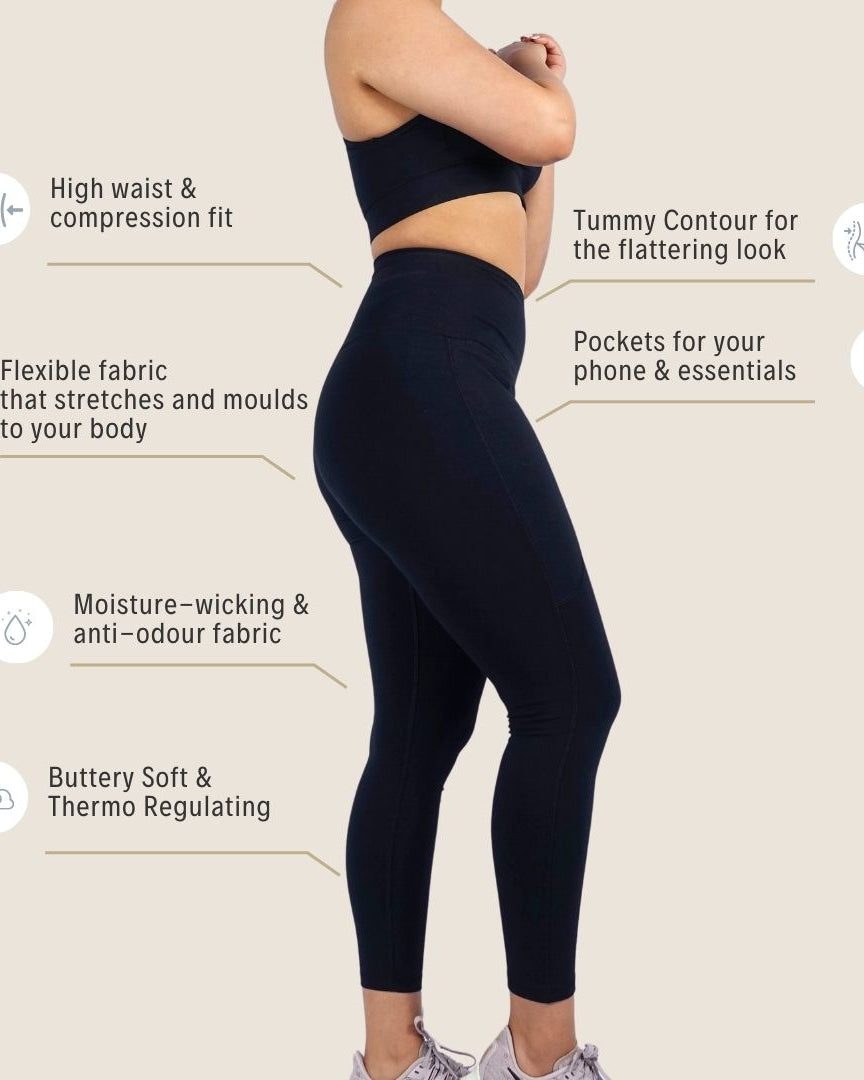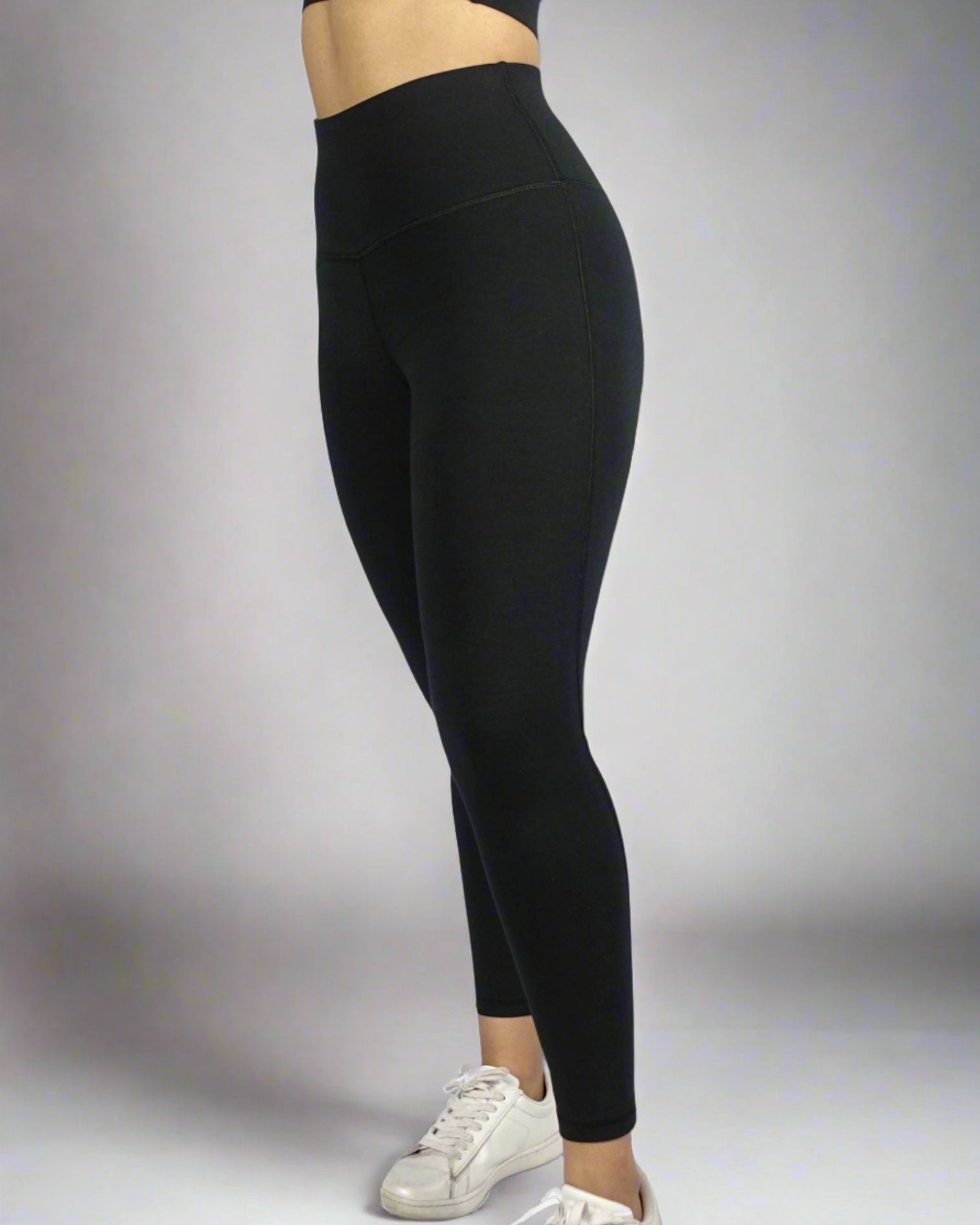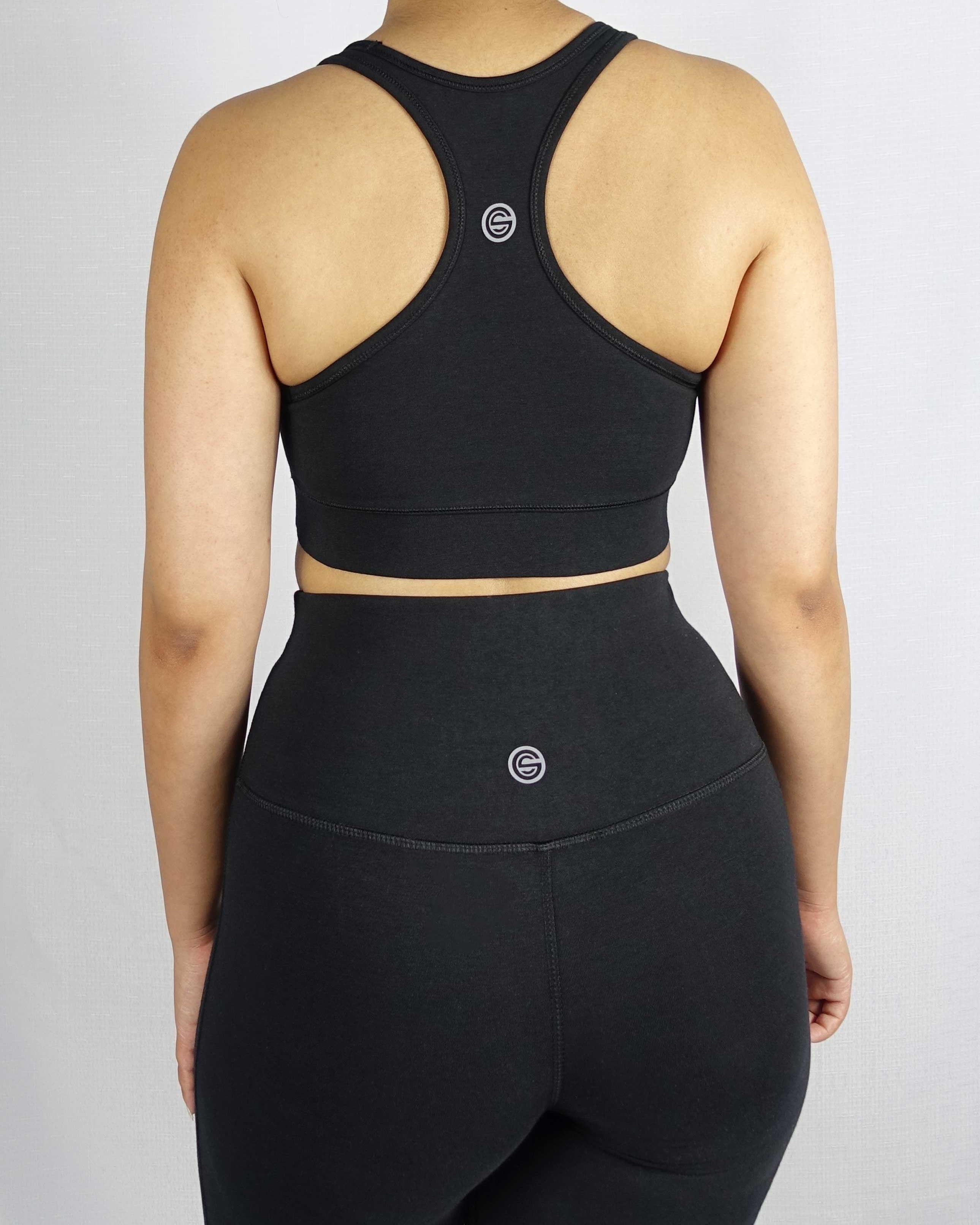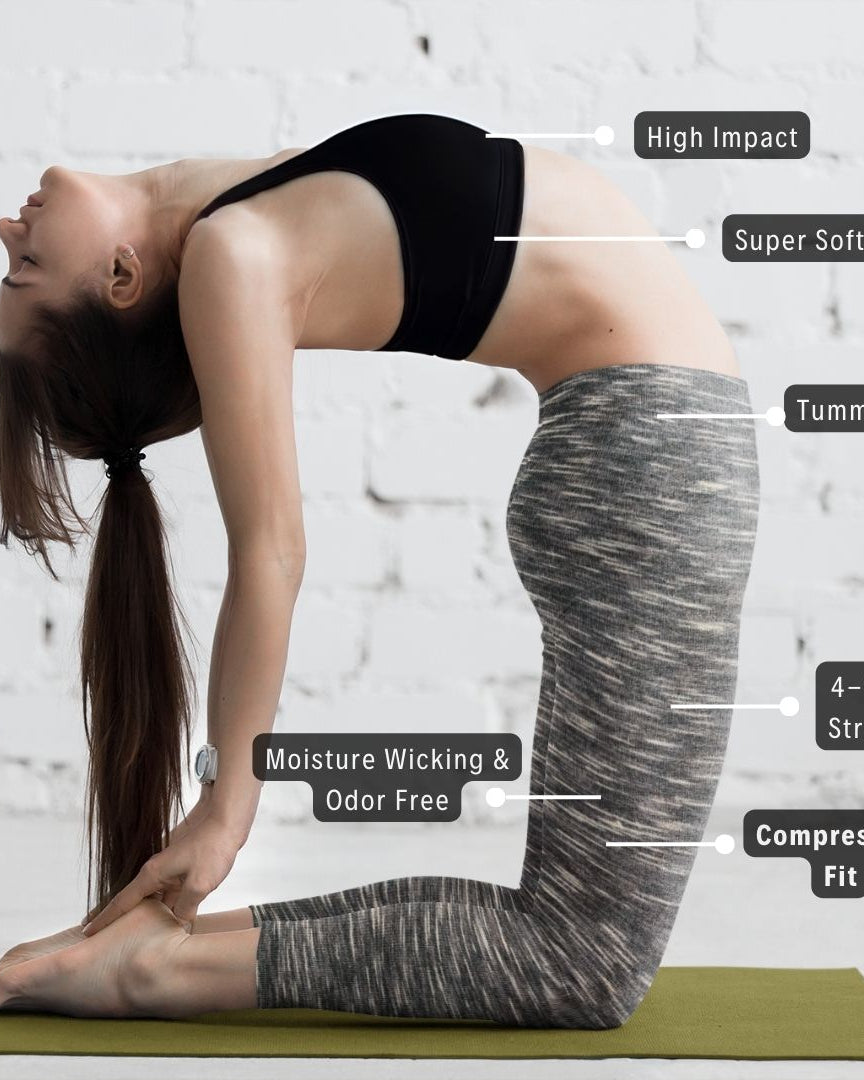We now know that our physical well-being can significantly impact our mental well-being. Previously we looked at the mind-body connection and how exercise can improve the state of our mental wellness. Studies have proven the benefit of regular exercise for treating mental health conditions, to an extent that they are as powerful and beneficial as medicine (1).
One of the great things about working at Active by GS is that we get a lot of queries on fitness and lifestyle routines. As a team we also are able to discuss any such questions with experts. At Active by GS, we are not just an activewear and athleisure brand, we are thoroughly vested into lifestyle enhancing ways. We not only believe in love your body and taking small steps to make a big difference, but we also walk the talk! Getting our body to move can help our minds in a significant manner. Step in exercise or physical activity!
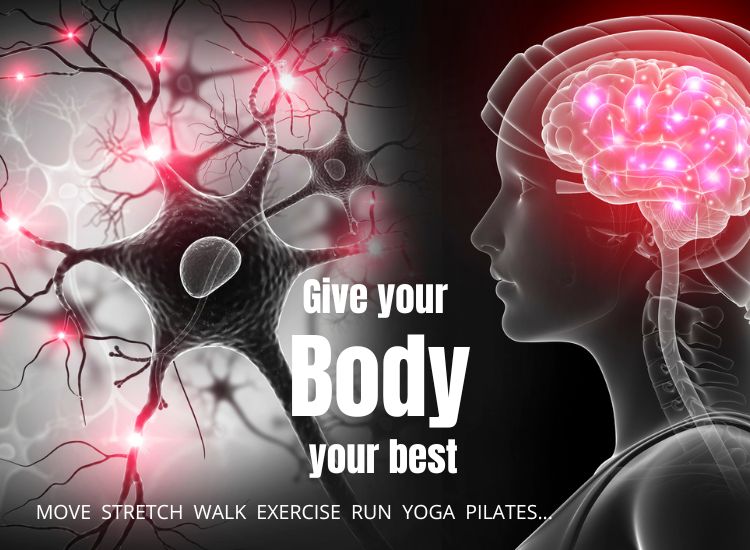
Today we dive deep into the specific benefits exercise has on us. Let’s explore some specific general reasons that would act as a catalyst to motivate you to start your exercise journey. We will also discuss some of the specific benefits of exercise for mental health and provide tips for getting started with an exercise routine. Let’s explore the profound impact of exercise on mental well-being and look at practical insights to optimize this powerful connection.
Impact of Physical Activity Among Adults
The Australian Institute of Health and Welfare reports sedentary behaviour in Australian population and the proportion of people who are not sufficiently active (2). The report is scary as it shows that younger adults are more prone to sedentary behaviour and do not meet the recommended amount of physical activity required. The reasons for this type of behaviour among young adults is for another blog post altogether, however, it is interesting to see that physical activity increases as we age. Check out the data below to see the amount of physical activity conducted between age groups.

Proportion of insufficiently active adults aged 18–64, by age and sex, 2020–21 (Source: AIHW, Physical Activity, 2023)
There is need for awareness as well as the understanding why it is important to be physically active and try and exercise on a regular basis.
The Profound Impact of our Mind on our Body
We have seen that our mind has a profound impact on our body. The relationship is between the two is a dynamic interplay where one influences the other, be it positively or negatively. Therefore, both our physical and mental health are closely linked. This means that what we do with our bodies can have a significant impact on our mental health, and vice versa. Read more about the mind-body connection here.
There are a number of different ways that exercise can improve mental health. We have already seen that regular physical activities helps with depression, anxiety, PTSD and so much more. Exercise is s natural stress reliever and endorphin enhancer.
Exercise as a Natural Antidepressant and Mood Enhancer
One of the most remarkable benefits of exercise on mental health is its ability to act as a natural antidepressant. Physical activity stimulates the release of endorphins, also known as 'feel-good' hormones, which can significantly improve mood and reduce symptoms of depression. Exercise can help to improve mood by increasing levels of serotonin, a neurotransmitter that plays a role in regulating mood (3).
We'll explore how different forms of exercise can maximize these positive effects. For example, when we exercise, our bodies release endorphins, which have mood-boosting effects. Endorphins are sometimes referred to as "natural painkillers" because they can also help to reduce pain. Exercise can also help to improve sleep quality, which can further improve mood and reduce anxiety.

In addition to these general benefits, exercise has also been shown to be effective in treating specific mental health conditions. For example, a study published in the Journal of the American Medical Association found that exercise was just as effective as medication for preventing relapse in people with depression (4).
Mental health therapists advise exercising as a way to cope with stress and anxiety. Many non-exercisers when starting their workout journey are surprised at how much it helped. They have reported feeling better both physically and mentally after exercising including having more energy, sleeping better, and in a better mood overall.
The Role of Exercise in Maintaining Mental Clarity and Cognitive Health
Exercise can help to improve cognitive function by increasing blood flow to the brain and stimulating the growth of new brain cells. Exercise is not only beneficial for our emotional well-being but also for our cognitive function and mental clarity.
Engaging in regular physical activity can enhance memory, concentration, and overall brain function. Want to know more? Read here to explore the science behind this phenomenon that suggests that exercises boost cognitive abilities.

Mechanisms of physical activity on the Brain (Source: Stillman et. al., 2016)
Exercise is Effective to Reduce Stress and Anxiety
Feeling overwhelmed by stress or struggling with anxiety? Exercise can be your natural remedy. Physical activity has been proven to reduce stress levels and alleviate symptoms of anxiety by releasing tension and promoting relaxation.
Discover effective exercise techniques and strategies to manage stress and anxiety effectively. Exercise helps to release endorphins, which have mood-boosting effects. It can also help to distract us from our worries and problems, which can give us a mental break. Exercise can help to reduce anxiety by reducing stress levels and improving sleep quality.
Empowering Self-Esteem through Regular Exercise Routines
Feeling low? Exercise can help to increase self-esteem by helping us to feel more confident and capable. If you're looking to boost your self-esteem and confidence, exercise is your secret weapon.
Regular physical activity not only improves physical appearance but also enhances body image perception and self-worth. There is a definite connection between the brain and physical activity and thus exercise and self-esteem. We will also look at some actionable tips to harness this empowering relationship.
Benefits of exercise in improving sleep quality
Sleep is something that we always get queried about! How to improve sleep. Are you one of those people who tosses and turns and wake up feeling groggy and gritty eyed?
There are several ways that exercise can improve sleep quality. Stress and anxiety interfere with the quality of sleep. As we have already seen, exercise helps to release endorphins, which have mood-boosting effects which in turn will help with reducing stress and anxiety.
Exercise also helps to regulate the body's internal clock, also known as the circadian rhythm. This is the body's natural cycle of sleep and wakefulness. When we exercise regularly, it helps to keep our circadian rhythm in sync, which can make it easier to fall asleep and stay asleep at night.
In addition, when we exercise, we become more tired, which makes it easier to fall asleep. Exercise also helps to improve the depth of sleep, which is the most important part of sleep for physical and mental restoration. However, make sure you do not get into intense activities before bedtime. We recommend giving yourself ample time to restore before going to bed.
Tips for Getting Started with an Exercise Routine
Now that we know the benefits of regular physical activity or exercise, lets look at some tips to help us start and stay motivated.
If you are new to exercise, or if you have been inactive for a while, it is important to start slowly and gradually increase the intensity and duration of your workouts. Here are some tips for getting started with an exercise routine,
- Find an activity that you enjoy: This will make it more likely that you will stick with your exercise routine. For example, if you enjoy being outdoors, you could try walking, running, biking, or hiking. If you prefer to stay indoors, you could try yoga, Pilates, or dancing. So find an activity that you find fun and that you'll actually look forward to doing.
- Start slowly: Don't try to do too much too soon. Start with short workouts and gradually increase the duration and intensity as you get fitter.
- Set realistic goals: Don't try to do too much too soon. Set small, achievable goals that you can gradually work towards. For example, you could start by aiming to walk for 30 minutes three times a week. Try moderate intensity exercise most days of the week. This could include activities like walking, running, biking, swimming, or dancing.
- Choose the right gear: Arm yourself with the right gear such as comfortable clothing, gym wear or activewear; the right shoes to support you, accessories that you need to make it easier to move around; smart wearables such as smart watches to motivate you and so on.
- Make exercise a part of your routine: Schedule time for exercise in your day just like you would any other important appointment. This will help you to stay on track and make exercise a habit. However, avoid exercising too close to bedtime. Exercising too close to bedtime can make it harder to fall asleep. Aim to finish your workout at least 3 hours before bedtime.
- Find a workout buddy: Exercising with a friend or family member can help you stay motivated. A buddy can make workout fun too!
- Reward yourself: This is perhaps the most important point for motivation. Rewarding yourself! When you reach a goal, reward yourself with something you enjoy. This will help you stay motivated to keep working out.
Most importantly, listen to your body. If you're feeling tired, don't push yourself to exercise. Take a break and listen to your body's needs.
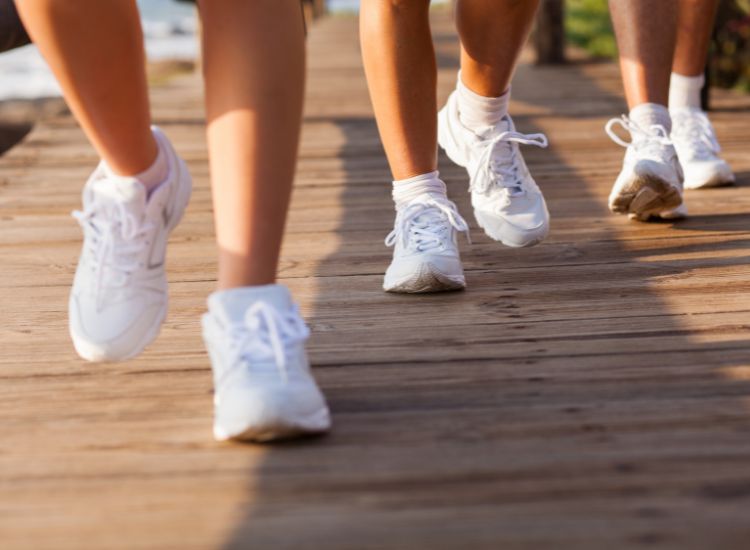
Let’s Get Moving
Exercise is a great way to improve your physical and mental health. If you are looking for a way to improve your mood, reduce stress, or boost your self-esteem, exercise is a great place to start. Including a workout program to your daily activities is also great way to improve sleep quality.
If you're struggling with sleep problems, adding exercise to your routine can help you get a better night's sleep. So, get moving and start enjoying the benefits of exercise for sleep today! There are many different types of exercise that you can do, so find something that you enjoy and that fits into your lifestyle. With a little effort, you can start reaping the benefits of exercise for your mental health today.
So what are you waiting for? Let's get moving with Active by GS!
Have questions or need to know more? Contact us at hello@activebygs.com
References
- Firth, J., Solmi, M., Wootton, R. E., Vancampfort, D., Schuch, F. B., Hoare, E., & Stubbs, B. (2020). A meta‐review of “lifestyle psychiatry”: the role of exercise, smoking, diet and sleep in the prevention and treatment of mental disorders. World psychiatry, 19(3), 360-380. https://onlinelibrary.wiley.com/doi/full/10.1002/wps.20773
- Australian Institute of Health and Welfare. (2023). Physical activity. Retrieved from https://www.aihw.gov.au/reports/physical-activity/physical-activity
- Lee, J., Gierc, M., Vila-Rodriguez, F., Puterman, E., & Faulkner, G. (2021). Efficacy of exercise combined with standard treatment for depression compared to standard treatment alone: a systematic review and meta-analysis of randomized controlled trials. Journal of affective disorders, 295, 1494-1511.
- Legrand, F. D., & Neff, E. M. (2016). Efficacy of exercise as an adjunct treatment for clinically depressed inpatients during the initial stages of antidepressant pharmacotherapy: An open randomized controlled trial. Journal of affective disorders, 191, 139–144. https://doi.org/10.1016/j.jad.2015.11.047https://www.researchsquare.com/article/rs-3045327/v1
- Stillman CM, Cohen J, Lehman ME and Erickson KI (2016) Mediators of Physical Activity on Neurocognitive Function: A Review at Multiple Levels of Analysis. Hum. Neurosci. 10:626. doi: 10.3389/fnhum.2016.00626
- Dobkin, B. H., et al. (2010). Exercise as an adjunctive treatment for major depression: A randomized controlled trial. JAMA, 304(1), 34-41.]
- Salmon, P., et al. (2000). Exercise for the treatment of anxiety disorders: A systematic review. Clinical Psychology Review, 20(1), 33-53.]
- Bisson, J. I., et al. (2007). Exercise-based cognitive therapy for post-traumatic stress disorder: An open trial. Journal of Traumatic Stress, 20(1), 35-40.




